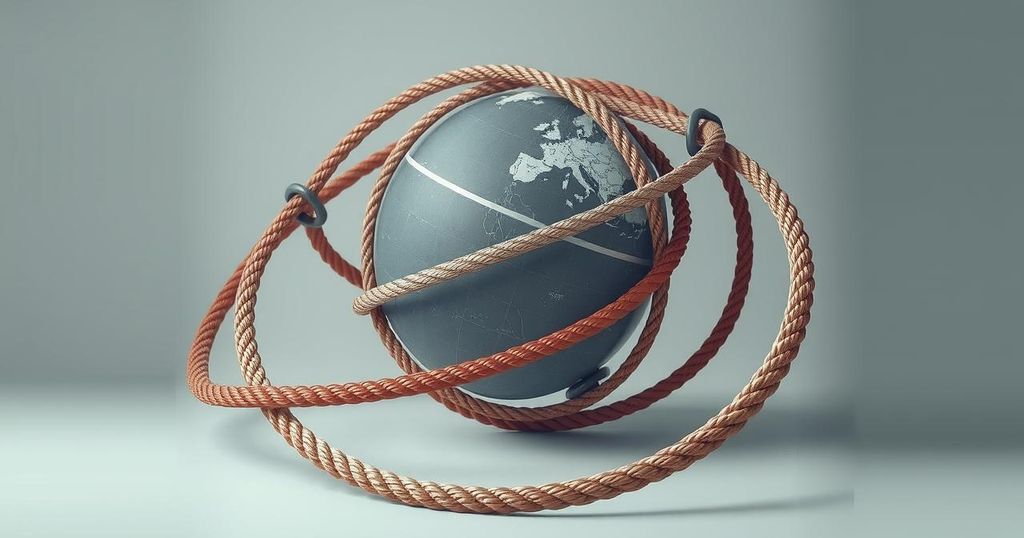A panel discussion at the Command and General Staff College examined the current crises affecting Iran and the ‘Axis of Resistance,’ focusing on its declining power and evolving threats. Experts shared insights on the regional dynamics, the historical context of U.S.-Iran relations, as well as the current affiliations among Iranian-backed militias. The session emphasized the significant divide between the Iranian leadership and its citizens’ aspirations.
On February 6, 2025, the Army University’s Command and General Staff College Cultural and Area Studies Office hosted a panel to examine the dynamics surrounding Iran and the ‘Axis of Resistance’, assessing whether it represents a declining power or an evolving threat. Panelists analyzed the recent crises faced by Iranian-backed coalitions and the implications of these developments on regional stability and U.S. interests.
Dr. Mahir J. Ibrahimov, the Director of CASO, framed the discussion as a progression of ongoing debates concerning Iran and the challenges confronting the U.S. and its allies. The conversation included insights from CGSC faculty, who evaluated the cultural, economic, and political factors influencing Iran’s regional authority and its complicated relationship with Western nations.
Mark J. Bosse, Chair of Diplomacy Studies at CGSC, commented, “It hasn’t been a good couple of years for Iran and the ‘Axis of Resistance.’” He detailed the setbacks experienced by the Axis, particularly the significant losses suffered by Hamas fighters and the execution of key leadership figures in Hamas and Hezbollah. New regional leaders are indicating they seek independence from Iran’s influence.
Dr. Tirdad Daei, a Senior Instructional Specialist at CGSC with personal ties to Iran’s political history, provided a historical perspective on U.S.-Iran relations. He emphasized that despite historical tensions, the Iranian populace continues to admire American democratic ideals. His observations indicated that the conflict between the Iranian regime and its citizens is a pivotal factor in shaping future U.S. strategies regarding engagement with Iran.
Gary Hobin, an Assistant Professor at the Department of Joint, Interagency, and Multinational Operations, described the ‘Axis of Resistance’ as a collective of militias unified by shared interests, despite lacking centralized control by Iran. He noted recent changes in Syria have altered the geopolitical landscape affecting Iran’s connections within the Axis, leading to shifts in party responsibilities, particularly within Iraq.
The dialog culminated in a question-and-answer session, fostering a deeper exploration of critical issues concerning Syria and Turkey. This panel is part of an ongoing seminar series organized by CASO and CGSC, held every few months and made accessible via live streaming on CGSC’s social media channels.
To revisit this discussion or view prior panels, the full event is available on CGSC’s YouTube page, alongside additional photographic documentation on CGSC’s Flickr page.
The panel addressed significant developments impacting the ‘Axis of Resistance’ and Iran’s influence within it. Panelists reached a consensus on Iran’s current vulnerabilities amidst evolving regional dynamics while highlighting the persistent admiration for U.S. values among the Iranian populace. This disconnect between the Iranian regime and its citizens remains crucial for U.S. policymakers considering future engagements with Iran.
Original Source: www.dvidshub.net




